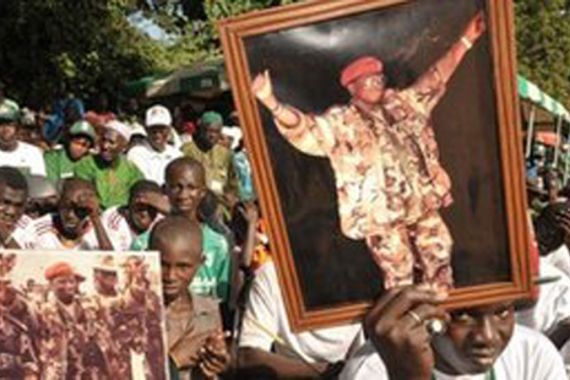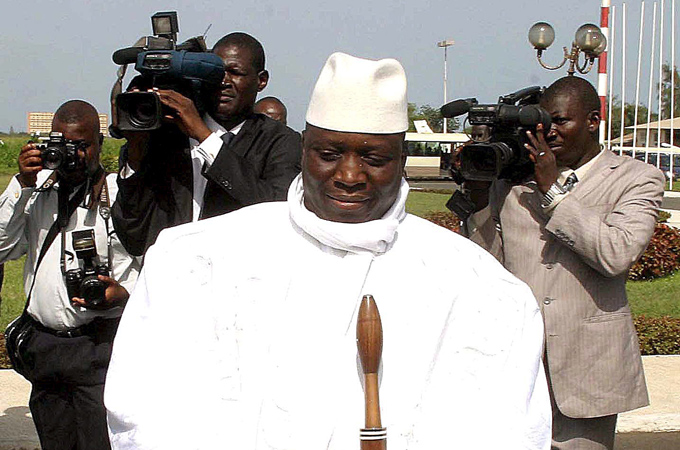Doubts over ‘unfair’ Gambia presidential vote
Regional West African body says it will not send observers to poll after finding an “electorate cowed by repression”.

 |
| Jammeh has held office since 1994 after he led a bloodless coup [EPA] |
The Gambia does not have a fair political environment to hold a free and fair presidential elections, the Economic Community Of West African States (ECOWAS) has said, ahead of Thursday’s presidential election.
The West African regional body said for that reason it was not sending election observers to monitor the poll, where Yahya Jammeh looks set to be re-elected.
It said a fact-finding mission it had sent had found “an unacceptable level of control of the electronic media by the party in power … and an opposition and electorate cowed by repression and intimidation”.
Nearly 800,000 Gambians are registered to vote in the election, which pits Jammeh against two opposition rivals.
Voers will cast marbles into drums instead of marking ballots, in a survival from colonial times.
|
” ECOWAS is painting a false picture of the political climate of the country. “ – Alhagie Mustapha Carayol, head of the Gambia’s electoral body |
Jammeh’s re-election to a new five-year term looks almost certain after 17 years of rule that began with a 1994 bloodless coup, and has since been marked by lethal crackdowns on protests, mass arrests of opponents and military reshuffles.
ECOWAS, in an unusually strong criticism of a member state, said it would not send a mission to observe the poll “because the preparations and political environment … are adjudged by the Commission not to be conducive for the conduct of free, fair and transparent polls”.
Alhagie Mustapha Carayol, the head of Gambia’s electoral body, said the ECOWAS claims were “nonsense and rubbish”.
“ECOWAS is painting a false picture of the political climate of the country,” said Carayol.
Accusations of fraud
One of Africa’s most colourful rulers, Jammeh, 46, announced in 2007 he had a herbal concoction that cured AIDS, a claim derided by international health experts.
Jammeh faces Ousainou Darboe, leader of the United Democratic Party, and Hamat Bah, who is being backed by a coalition of four opposition parties.
Jammeh has won all three elections since his coup, including his best result in 2006, with more than 67 per cent of
the votes, though the wins have been tainted by accusations of fraud.
International human rights watchdogs have repeatedly slammed Jammeh for stifling dissent and press freedoms, and
regional neighbours including Senegal and Guinea have accused him of trying to destabilise them.
The Gambia, a slither of land along the Gambia River, sandwiched between northern and southern Senegal, retains an archaic method of voting devised by British colonists.
Voters are given one marble each, which they drop into a drum corresponding to the candidate of their choice. The marble strikes a bell inside the drum, preventing multiple voting.